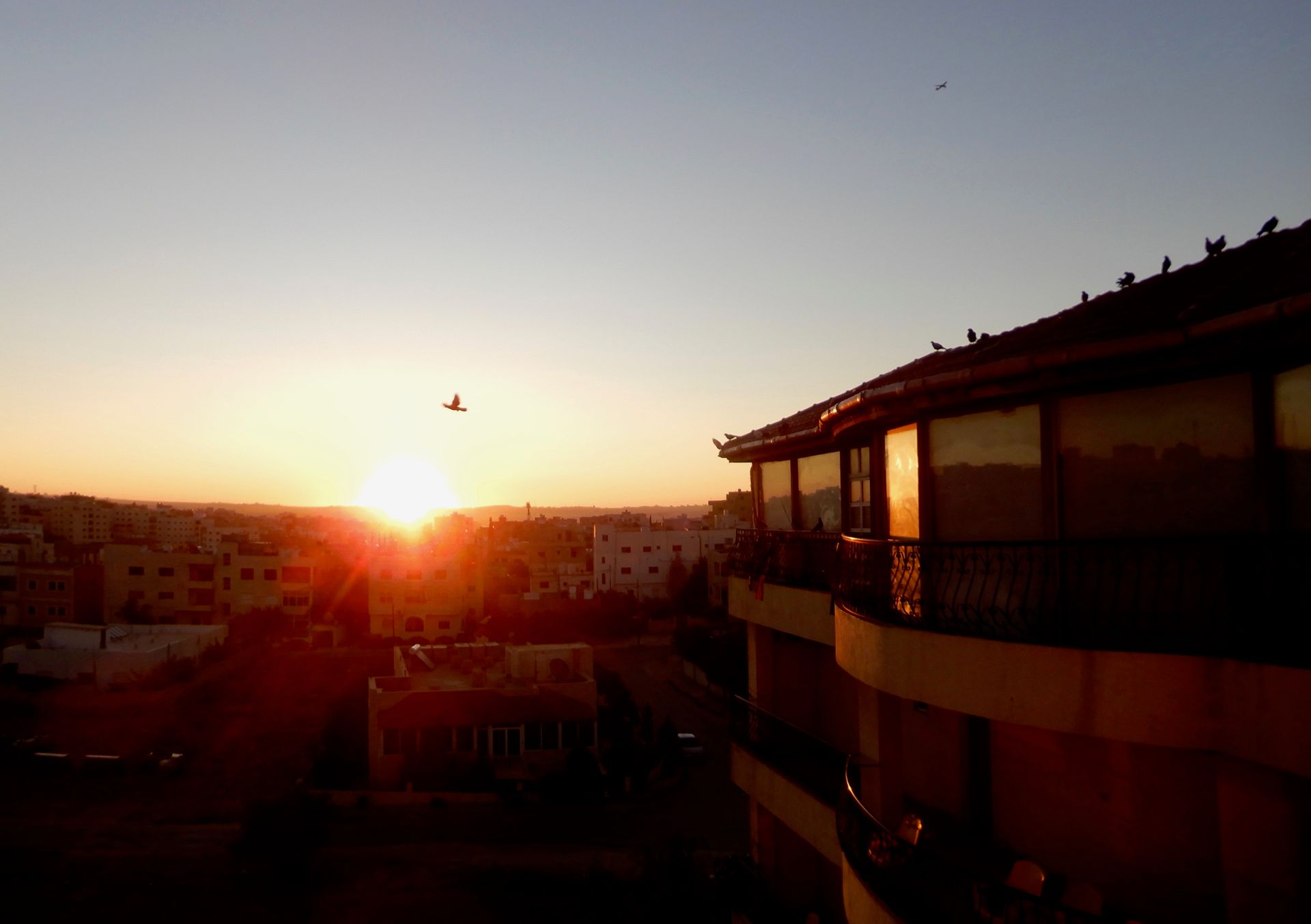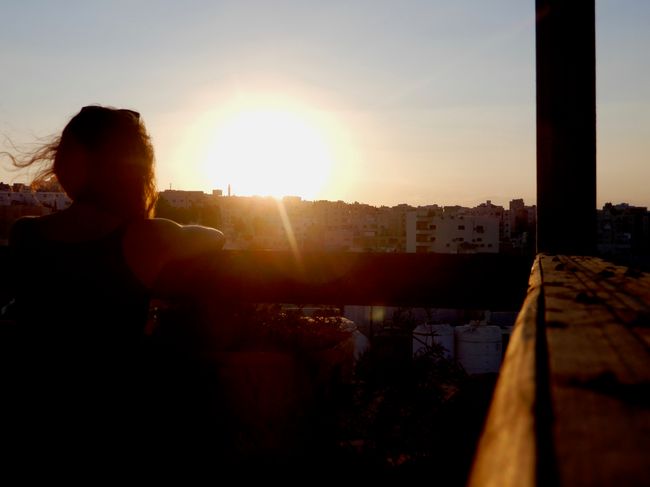Through the streets of Jericho
Argitaratu: 03.02.2020
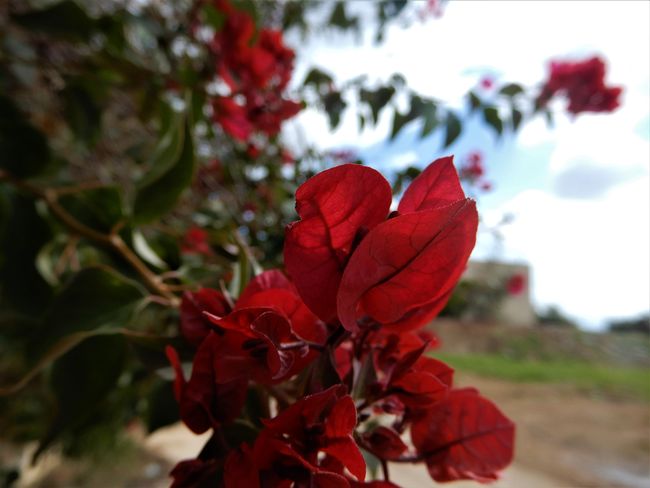
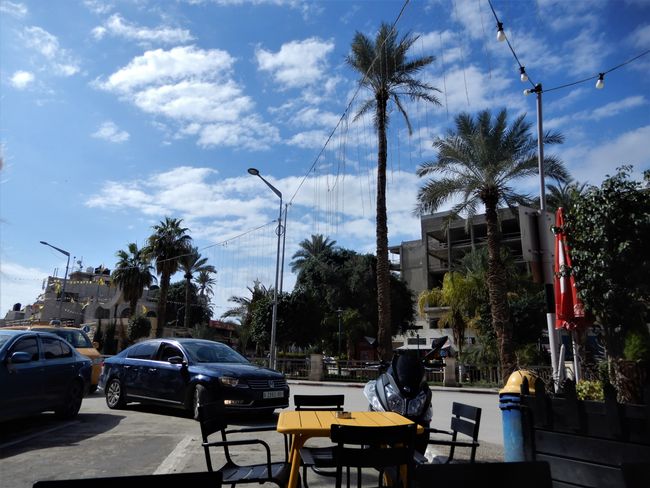
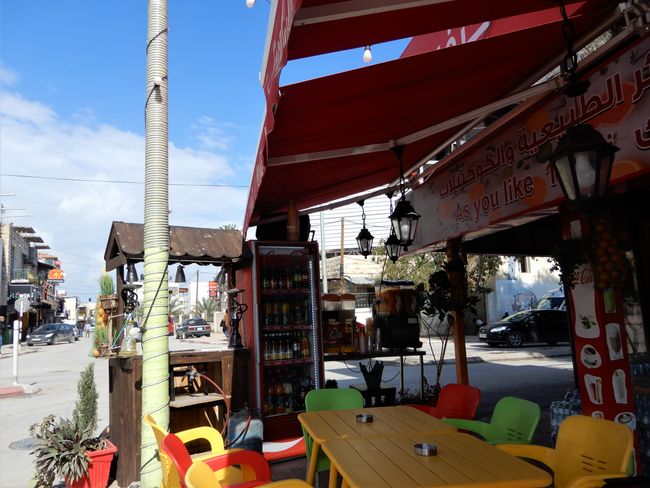
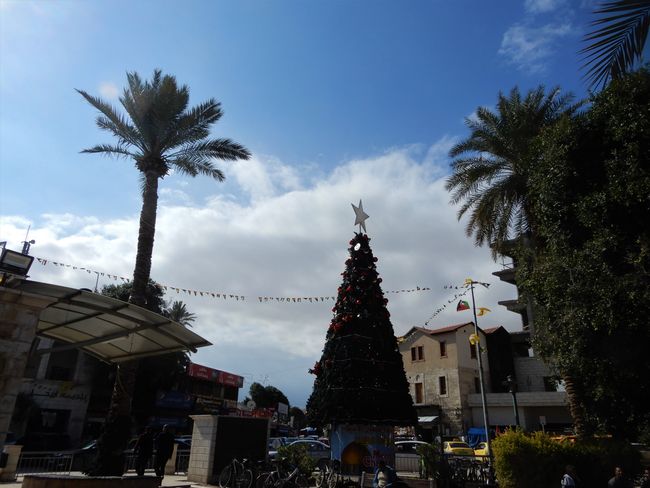
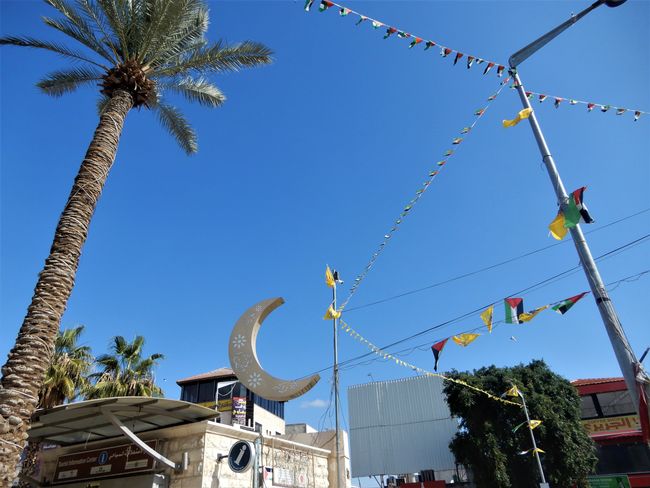
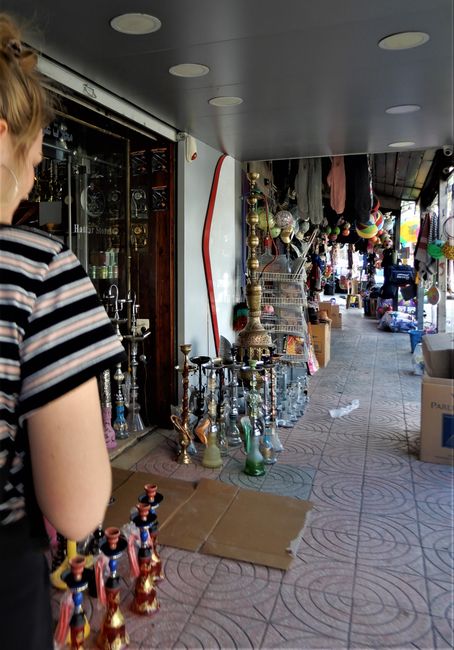
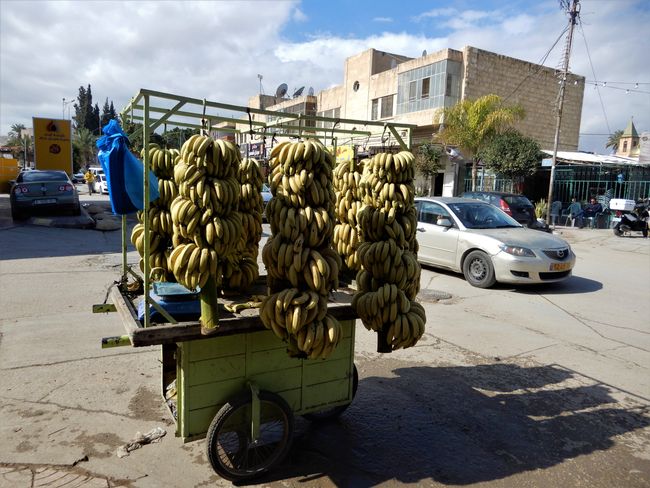
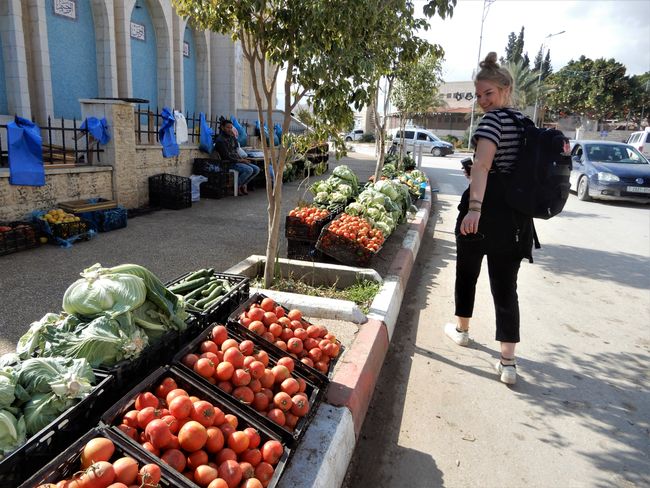
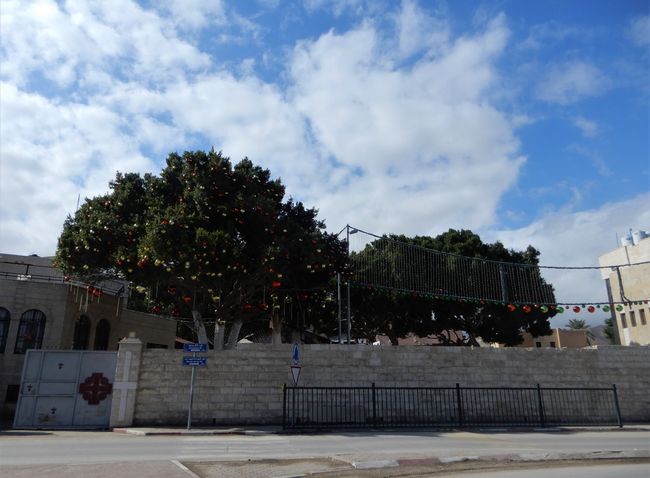
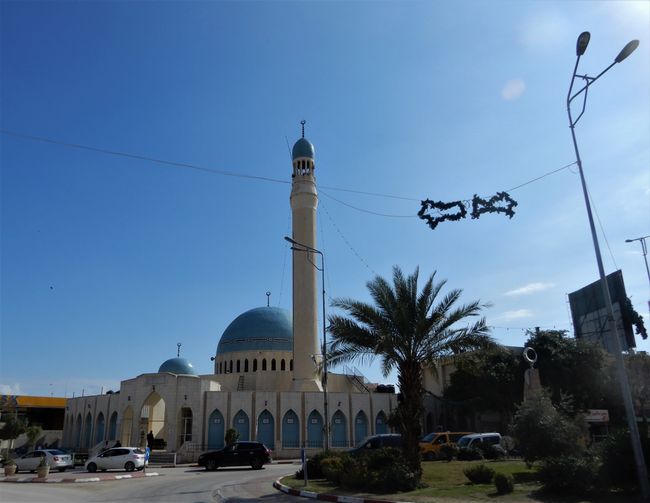
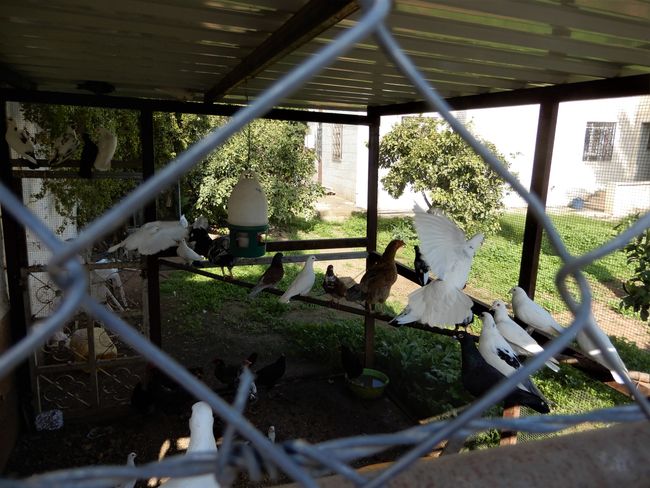
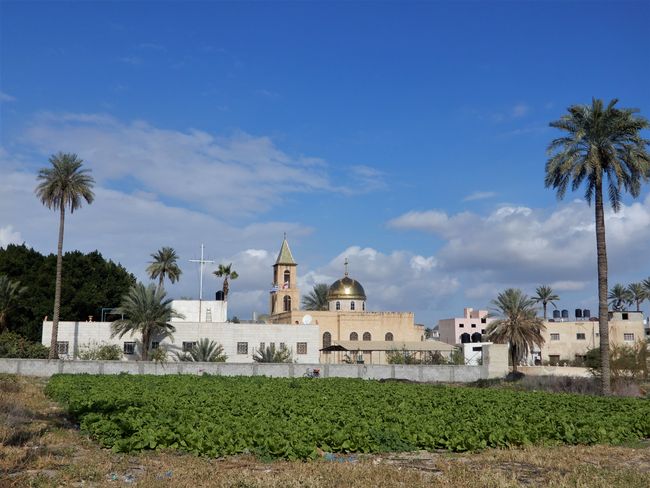
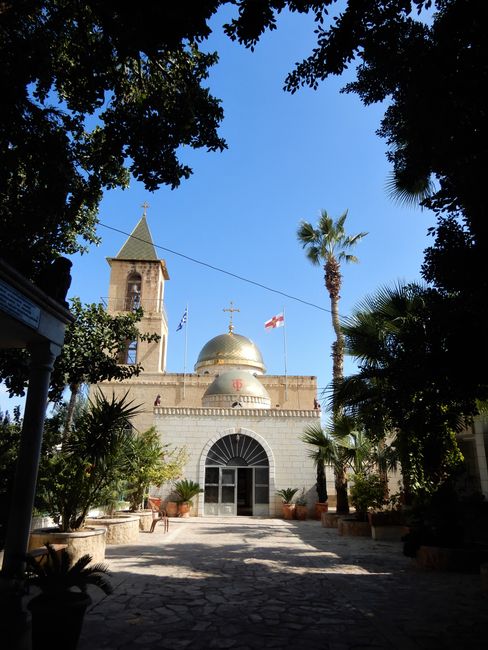
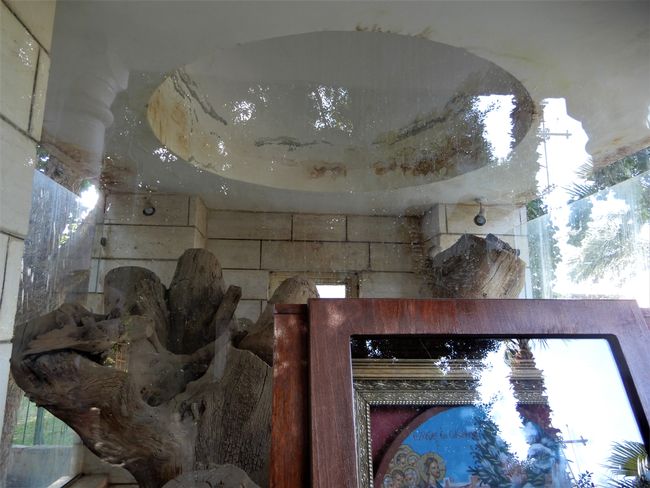
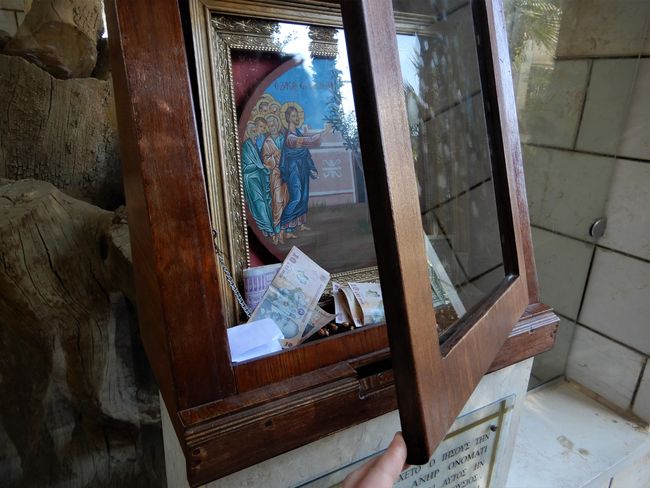
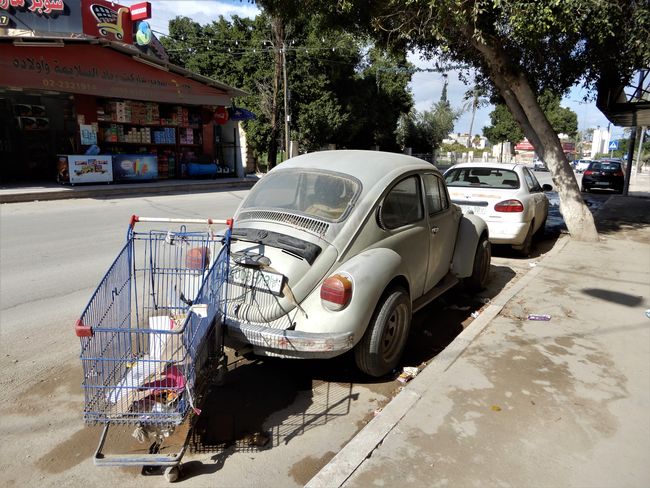
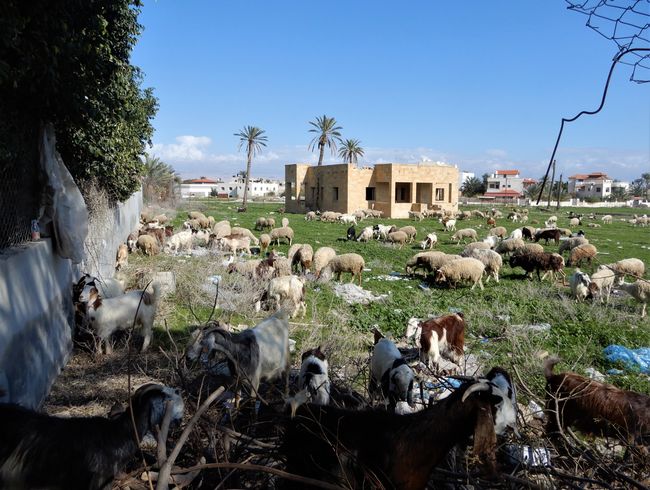
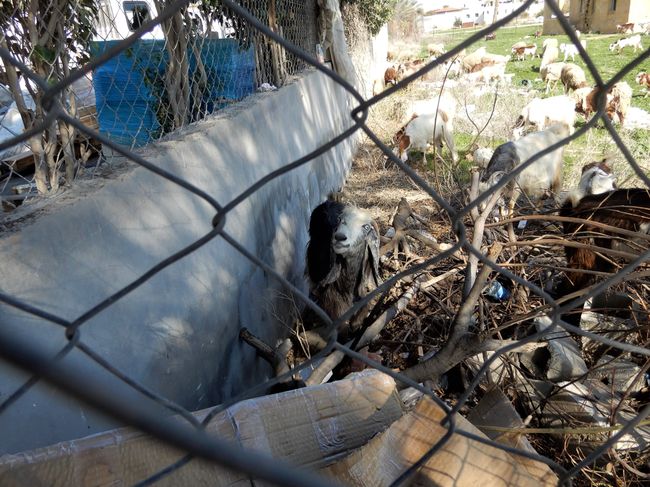
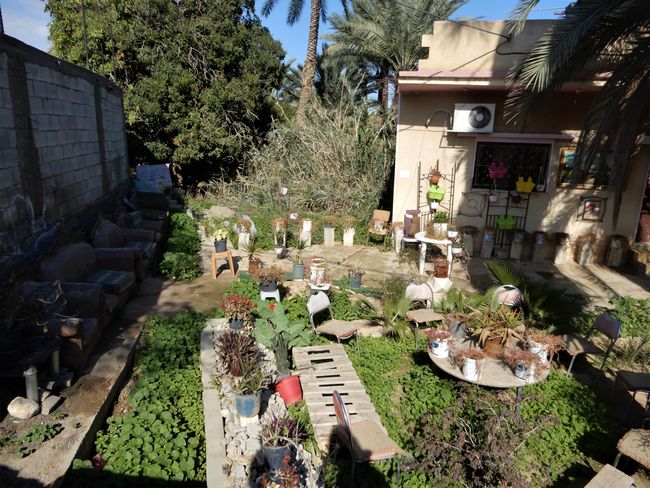
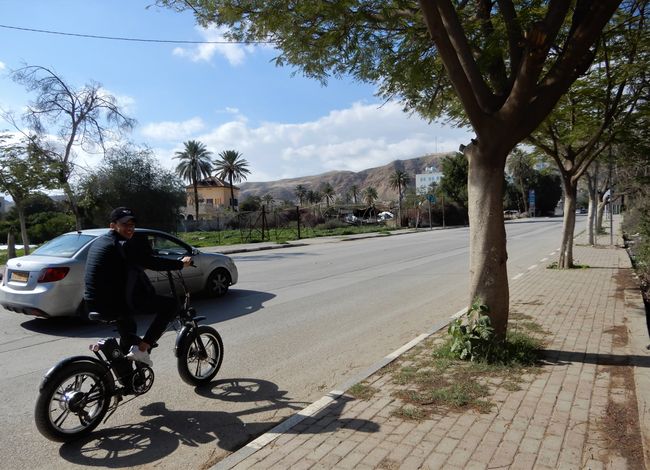
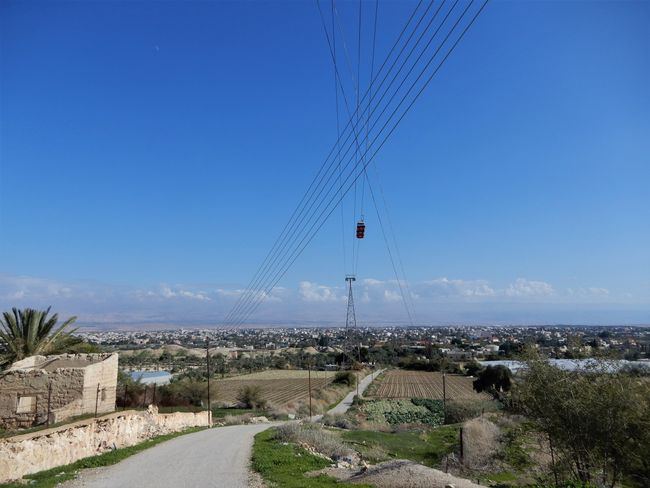
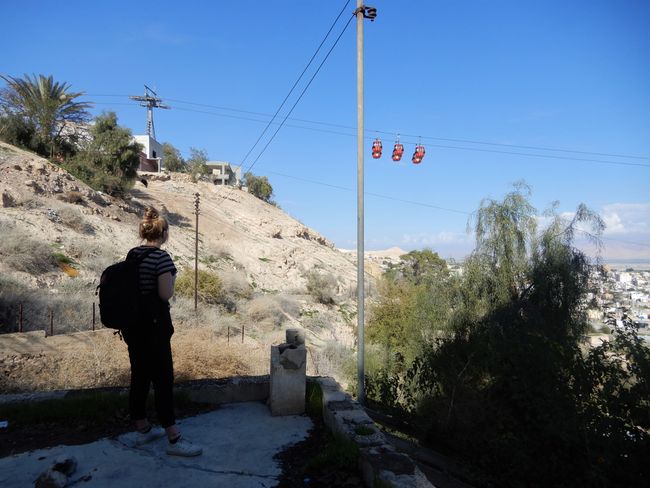
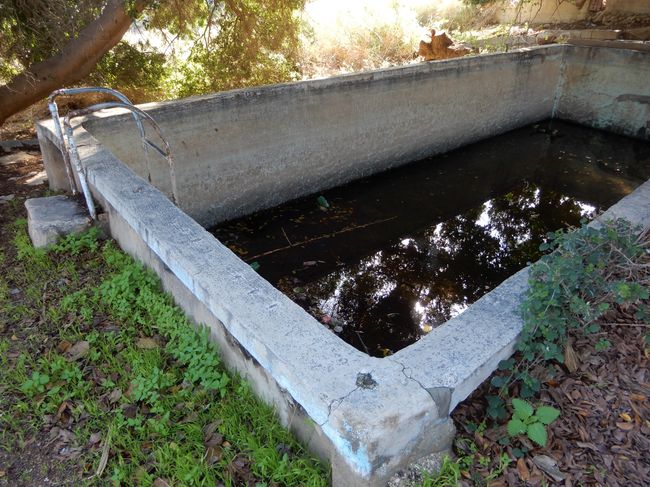
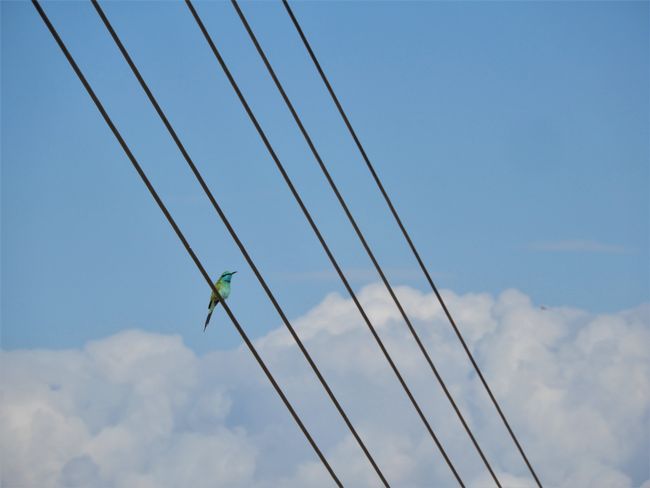
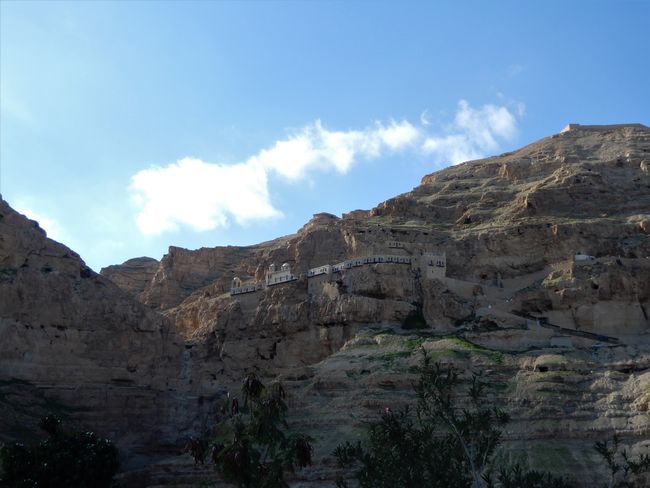
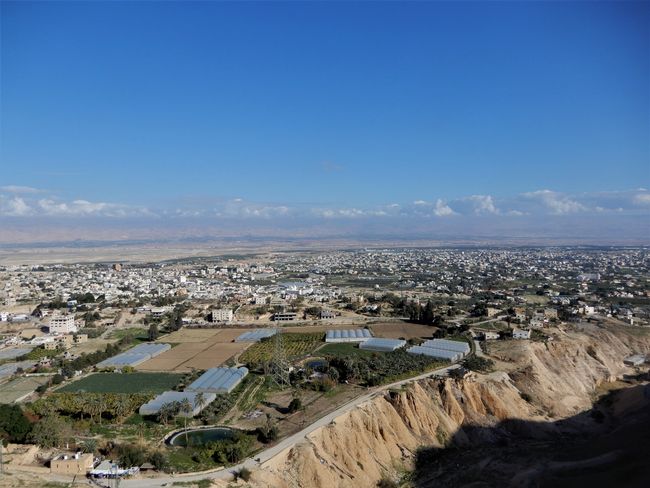
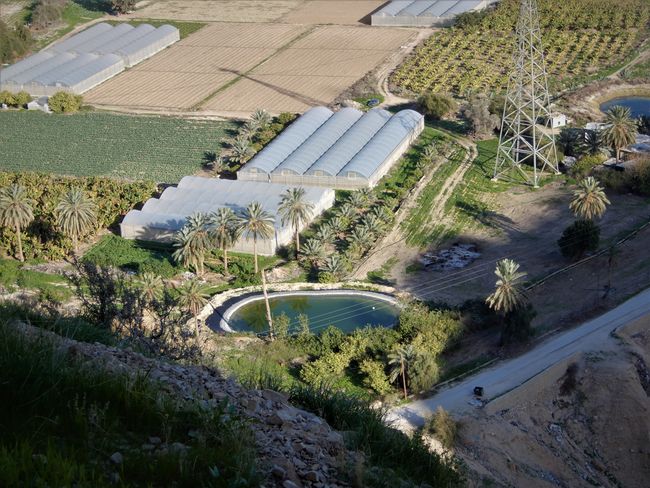
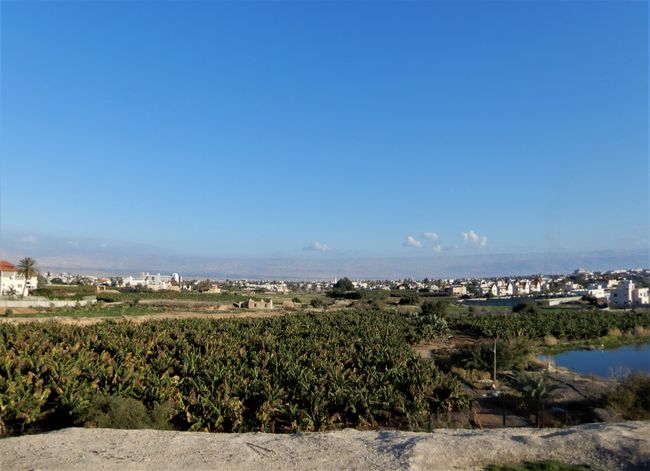
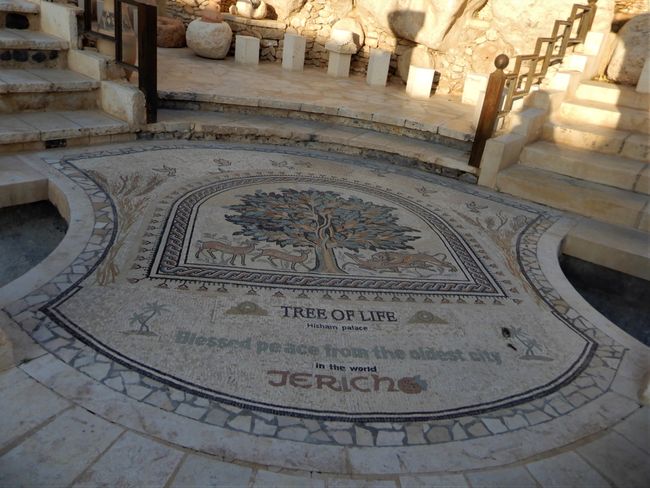
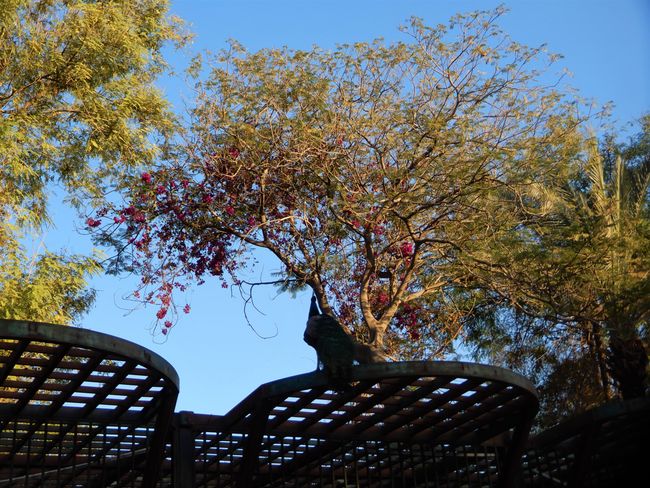
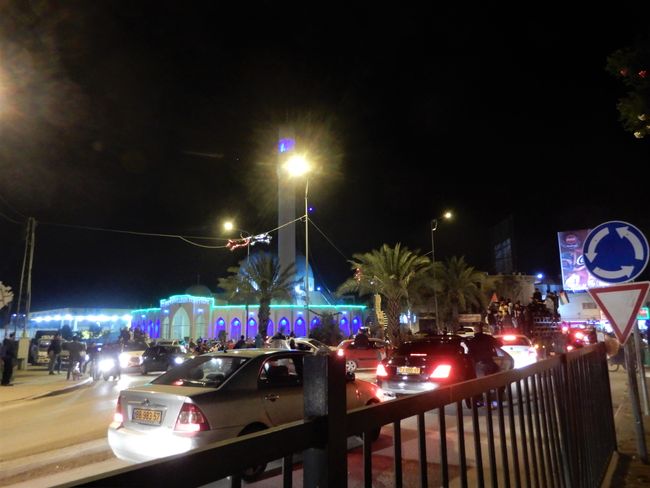
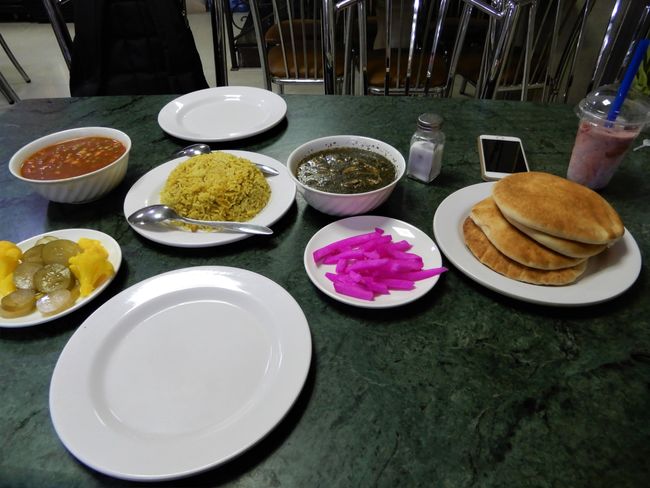
Harpidetu Buletinera
Sunday, 2nd February
9 am. Today we sleep a little longer and then walk into town. At the big roundabout in the center of Jericho, we get fresh bread and sesame cookies and have breakfast in a nearby cafe in the sun, warming our faces. That's a good start to the day. After a hearty breakfast, we set off, with the Mount of Temptation as our destination for today.
We pass a mosque with a blue roof that looks like a miniature version of the King Abdullah Mosque in Amman, from which a golden dome twinkles at us. The roof of a church, as we can see from the cross on top of the dome. The gate to the church is open, so we enter the grounds and then the church. A young man standing to the right of the entrance approaches us and introduces himself. His name is Yassin, a Muslim Palestinian who was born here in Jericho and has been working for this Orthodox Church for 10 years. Everyone in his family works for churches and monasteries, he tells us. He tells us how much he loves living here in Jericho, that he likes the heat (55-58° C in the summer!?), and that the town is truly a peaceful and calm place.
We can confirm that so far. He then shows us the mulberry fig tree in the courtyard in front of the church. Or rather, the stump of the tree that remains. Another over 2000 year old mulberry fig tree is also still in the center of Jericho. There are different views on which tree is the "true" tree on which the tax collector Zacchaeus climbed to see Jesus. The stump here is in an unpolished glass case and is rather semi-spectacular, but at least we have seen it.
We now say goodbye to Yassin and continue walking along streets and paths, getting closer to the Mount of Temptation. Above us, the red gondolas of the cable car glide quietly, which can take you to the mountain and the monastery with minimal effort. However, we are still walking well and only take a taxi driver with us on the last few meters (to be honest, he probably intended to offer us additional services with the free ride, but we have not committed to anything), and then we stand in front of the gates of the monastery on the Mount of Reconciliation around half past 2. Or rather, in front of closed gates - the monastery is only open until 2 o'clock on Sundays, as we now realize. However, we still learn a little from an information board about what this mountain is all about. In the caves of this mountain, Jesus is said to have fasted and prayed for 40 days before Satan tempted him 3 times. Today, there is a monastery at this place, which includes two churches that were built at different periods of time.
It is a pity that we cannot see the interior of the monastery now, but the walk was still worth it. With a wonderful view of Jericho, the Dead Sea, the border area, and Jordan beyond, the evening prayer now sounds. Birds circle in the sky, similar to Amman. We wait until the last sounds of the prayer fade away, then we start our way back. We take a brief look at an archaeological site where 10,000-year-old ruins of settlements from that time are located here in Jericho and then continue towards the city.
We want to use the rest of the daylight to visit Aqabat Jaber, now a district of Jericho. It was founded in 1948 as a refugee camp for Palestinians, but over the years it has become part of Jericho. There is also a hostel located there in this neighborhood. On the way to the city, a small car stops next to us. Two young men look at us and ask where we want to go. We tell them our destination and they offer to take us there.
So we now get a little private taxi ride to Aqabat Jaber. Which is quite convenient, because it would have been quite a long walk. With the car, we drive through the former camp, which looks completely different from the center of Jericho. Small, flat houses stand in narrow streets, with the color gray dominating. On walls within the city, the image of a key can be seen again and again. We have already learned that this key is a symbol of the Palestinians, which expresses their desire to return to their old homes from which they were expelled. Many Palestinians apparently took their house keys with them when they fled, in the hope of eventually returning once the conflict has calmed down. It is really interesting to have seen this part of Jericho as well.
We now drive back into the city, where our driver now gets out at his barber shop, which he operates, and his friend takes the wheel. He wants to go for a coffee with us, if we understand him correctly. He doesn't speak English. We soon stop at a juice bar, where he gets out and comes back a few minutes later with three huge fruit smoothies. I can no longer tell him that I really cannot drink such smoothies, but Lea helps me by secretly drinking from both cups so that I don't seem ungrateful.
Our journey into the unknown continues, with a stop at a craftsman's shop. Here, our driver asks us to get out. So we enter the shop with him, where a nice woman greets us, who speaks very good English and asks us how she can help us. Lea and I don't really know. We don't even know where we are, let alone what we are looking for here. She briefly speaks to our driver again, who turns out to be the barber of her husband. He only brought us here because he doesn't speak English himself, and now we can talk to the woman.
We don't even know her name, but she asks us to sit down, offers us oranges and water (Jericho is famous for citrus fruits, which are really juicy and delicious here), and chats with us for a while. She tells us that she is from Jerusalem, where she grew up and started a family, and has recently moved to Jericho, where she and her husband opened this shop a few months ago. Jerusalem had become too noisy for them, which is why they moved here to Jericho to find some more peace and quiet. And that is absolutely understandable. Jericho is truly a place to relax.
After a very nice conversation, our driver (as you may already notice, I don't even remember his name anymore) drives us back to the city. We actually wanted to meet Yassin again, but we are a little late - the church grounds are already closed. Instead, we stumble upon a kind of demonstration at the roundabout in front of the mosque. Palestinians drive on large trucks, wave their flags, and play music. Everyone seems peaceful and happy. We don't exactly find out what the occasion is, but we don't want to get too close and instead look for a restaurant for dinner.
Today we decided to try rice and molokhia, an alternative to the well-known falafel and hummus, and then we go to a shisha bar to smoke a shisha at the end of the day. We have already noticed that the shisha bars here in Jericho are exclusively visited by men, but that doesn't stop us. Not surprisingly, we attract the attention of all the guests and passers-by (we sit on two chairs facing the main road), but mostly not in an uncomfortable way. So we enjoy our lemon-mint shisha and our overly sweetened tea and later return to our beds with our hot water bottles.
Harpidetu Buletinera
Erantzun
